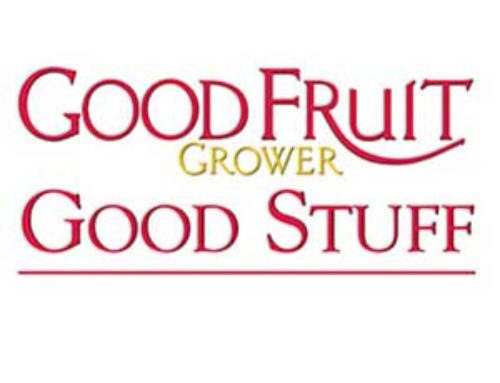
Mark Powers
Northwest Horticultural Council
A proposal to be made at the World Trade Organization’s Ministerial Conference in Hong Kong in December would reduce agricultural subsidies and tariffs, and help U.S. tree fruit producers be more competitive globally, an industry representative says.
The U.S. Trade Representative’s proposal would limit trade-distorting domestic subsidies and all agricultural export subsidies, and would gradually eliminate tariffs. Mark Powers, vice president of the Northwest Horticultural Council, said U.S. tree fruit producers stand to benefit from the proposal, since they don’t receive such subsidies while some of their competitors do.
Although U.S. apple producers have received direct production payments in unprofitable years, Powers said the amount is considered minimal. The U. S. Market Access Program, which provides funds to industry groups for developing export markets, is not considered a direct subsidy and does not distort trade. European fruit producers, on the other hand, receive payments for exporting, and that helps them lower their prices in export markets.
“We’re very much impacted by the European Union,” Powers said. “The EU—between their export subsidies, their domestic subsidies, and their tariff barriers—really keeps our product out of that market, the exception being the United Kingdom. Their apple producers are eligible for hundreds of millions of dollars of subsidies each year, and that obviously helps them compete against our product.
They’re also eligible for export subsidies, which affects our ability to export to Southeast Asia and some areas of Latin America. I think if you’re looking at the big picture—the global apple industry—there’s no doubt that those subsidies affect the ability of producers to compete globally, to the detriment of our industry and other industries that do not receive this assistance.
It could be, absent those payments and protections, you would have reduced apple production in Europe, which would benefit those of us around the world that also produce apples.” But there could be some dissent from producers of other crops in the United States, as it could mean a reduction in direct farm subsidies for program crops.
Some consumer or environmental groups already have concerns about such payments, and as the next farm bill comes up for debate, the U.S. government will be facing a large deficit, Powers pointed out. “When the last farm bill was written, they were basically in a surplus, which is not going to be the case when this next farm bill is written. I think there is, within some sectors of government and within some sectors in the U.S. private side, a realization that perhaps some of those subsidy programs need to be looked at again.”
Tariffs
Powers said the gradual elimination of tariffs—with the priority being to reduce the highest tariffs—would also be positive for the tree fruit industry. “We don’t have any tariff protections here in the United States for our commodities,” he said. “Looking around the world, you can pick any number of countries where our products are subject to tariffs.
If they were eliminated, our products would be more accessible to foreign consumers.” Although tariffs on tree fruits going to Europe are not high by global standards, they are still enough to keep product out, Powers said. “If we could get those lower, it would be a big help.”
Powers will attend the Ministerial Conference in his role as chair of the Fruit and Vegetable Agriculture Technical Advisory Committee for Trade, but will also represent the Northwest apple, pear, and cherry industries. The WTO launched the current round of trade negotiations—the Doha Development Agenda—at a Ministerial Conference in Qatar in 2001 and hoped to complete them by 2005.
Powers said agricultural trade has been a big sticking point, and the U.S. proposal is simply a basis for discussion in an attempt to get the negotiations concluded by the end of 2006. “The U.S. Trade Representative’s initiative is to try to jump-start the talks prior to everyone arriving in Hong Kong in December,” he said. “Some countries will think it’s good. Some will say it’s not aggressive enough.
In the EU, their likely reaction is going to be ‘No way.’ Japan may say ‘Absolutely not.’ That’s what needs to get worked out. Until people put something on paper and put it out for discussion, what we have right now is stalemate. “From the perspective of Pacific Northwest tree fruit, I think this is something that’s very positive, and while it’s not a done deal by any means, it’s trying to get things going our direction.
The status quo is not something that’s good for our industry. We need to move forward, and this should help us do that.” It’s also an effort to improve the economic health of developing countries by increasing their opportunities to trade. “That’s definitely one of the goals of the WTO trade round,” Powers said. “It’s part and parcel.
In order to get consensus, and get the desire and will to move forward with a new trade round, and reduce tariffs and do those things that need to be done around the world, the developing countries do need to see something in it for them.
“Their position has been over the years that WTO has been a developed-country club that’s provided benefit more to developed nations than developing nations. This time around, there was recognition on the part of the developed world that they would make this an ambitious type of round with improvements for developing countries.”




Leave A Comment